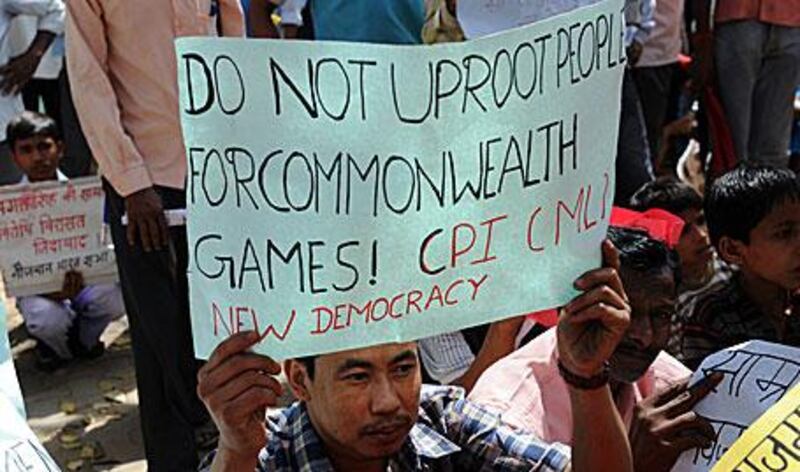Critics are convinced that this year's Commonwealth Games in New Delhi will fail to live up to the billing because of constant difficulties in the preparation for the Games. The dispute between the Commonwealth Games Federation and the organising committee in New Delhi may have officially ended but cynics insist that the sporting road to India's capital city is still littered with problems.
And even those who feel the Games will be a success do not appear full of bravado. "This happens before every big sporting event. Some people feel it is their business to create panic," an unnamed sports administrator told me, trying his best to sound convincing.
There were those who felt Athens would not be able to host the Olympics in 2004 smoothly. Some did not give the West Indies a chance to play ideal hosts for the 2007 Cricket World Cup. The planning and logistics of these events eventually went well, even if the cricket tournament was overshadowed by low attendances and the untimely death of Bob Woolmer, the Pakistan coach. To start to move things forward in a positive light in New Delhi, the Games organisers must have the unerring support of the public.
A recent report in the Hindustan Times quoted Rina Ray, the city's tourism chief, revealing a list of do's and don't for spectators at the Games - don't urinate in public, don't spit, keep your houses and shops clean and keep public transport safe. "This will tell every Delhiite that instead of being on the sidelines as a spectator, he or she can contribute to a better games," Ray said. One cannot question the intentions of the tourism authority.
There's no harm in highlighting a few things, even though they may not be comfortable for the public to accept, but can change come about by raising awareness just because the city is hosting a major sporting event? I am not sure. What needs to be changed are mindsets at a very fundamental level. Educate people through an extensive, long-term programme if you want to see change. To do it just before a Commonwealth Games, which begin in October, appears a short-term goal.
While the authorities do not want to see people urinating on the streets, have they ensured there are more public toilets to solve this problem? The New Delhi organisers would do well to look at what Beijing wrote on their 2008 Olympic Games website with regards to public co-operation. "The Beijing Olympic Games will be an occasion to spread modern Olympic ideas while displaying splendid Chinese culture, Beijing's historical and cultural heritage, and its residents' positive attitudes," it said.
"It will also be an opportunity to advance cultural exchanges, to deepen understanding and friendship between the peoples of the world, and to promote harmonious development between mankind and nature. "It will be a time to promote healthy interaction between individuals and society and to foster mental and physical health. In line with the 'people-orientated' and 'athletes-centred' ideas. "Beijing will spare no efforts to provide quality services and to build a natural and social environment that will satisfy all the Games' participants."
New Delhi plans to spread the word on good manners via billboards, pamphlets, websites, radio and television. Sheila Dikshit, the New Delhi chief minister, said: "We want to change Delhi's public culture, their behaviour towards each other and to guests, so that they are courteous. We want tourists to go back with the impression that Delhi is a sophisticated city." That would be great, but this should be the case for all visitors, not just people coming for the Commonwealth Games.
Nothing is more important than life and the news of 43 workers being killed while building venues for the Games due to dangerous work sites and a lack of appropriate safety equipment is shocking. There was so much talk about security threats for the Games, but here innocent people are killed in situations that are avoidable. "The monitoring panel filed a report to the New Delhi High Court saying conditions at the construction sites were poor and many accidents went unreported, while workers continued to work without proper safety gear," said an Associated Press report last week.
What are India's rulers doing about it? To find out who is responsible should take precedence. And while nothing can replace life, what kind of compensation is being handed out to the families of those killed? India continues to wield its financial clout in several spheres, but its concern for the life of people with lesser significance in its own country has to be questioned. India needs to wake up to its very own common wealth and not play around with it like a game.
Clayton Murzello is Group Sports Editor of the Indian newspaper Midday @Email:sports@thenational.ae





